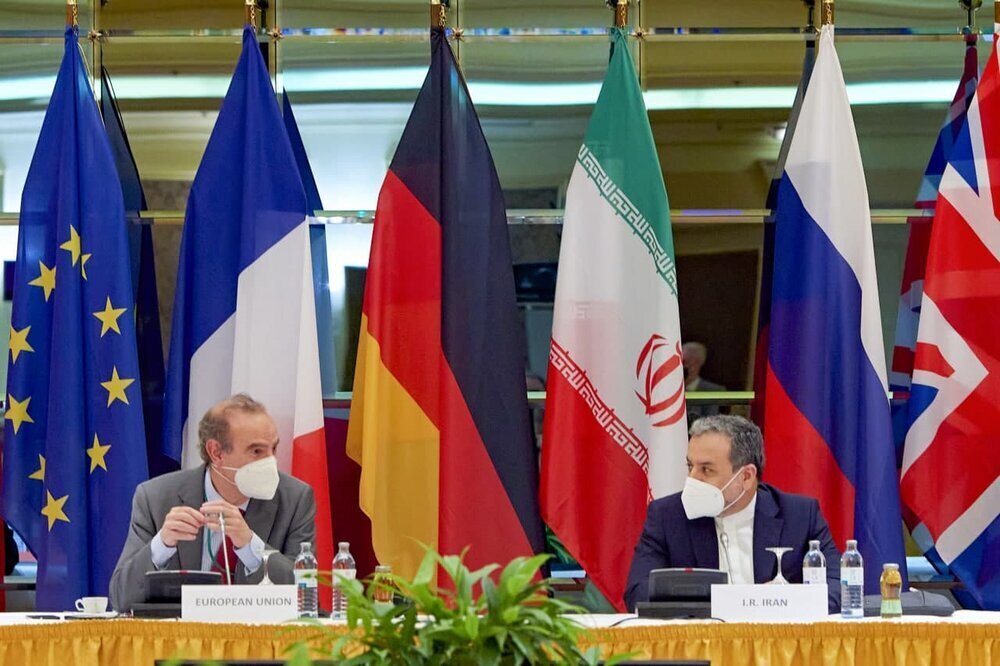Postponement of talks looms large as U.S. insists on destroying Iranian nuclear 'knowledge'

TEHRAN – In its Interim National Security Strategic Guidance issued in early March this year, the Biden administration equivocally warned of the prospect of Iran getting “game-changing capabilities and technologies.”
As the negotiating parties make efforts to solve core issues in the Vienna nuclear talks, the U.S. doubles down on its efforts to prevent Iran from acquiring these kinds of technologies or destroy the knowledge behind the technologies in case Iran achieved them.
This explains why the Vienna talks, aimed at reviving the Joint Comprehensive Plan of Action (JCPOA), have so far failed to yield tangible results, though they were widely expected by many observers to be concluded in late May or early June.
The Biden administration is now injecting a note of caution despite the sanguine expectations expressed by the negotiating parties over the course of the past five rounds of nuclear talks, which began in early April.
U.S. Secretary of State Antony Blinken on Monday said that the U.S. still does not know whether Iran is ready to resume compliance with the 2015 nuclear deal. “It remains unclear whether Iran is willing and prepared to do what it needs to do come back into compliance. So, we’re still testing that proposition,” he told lawmakers.
The remarks elicited a response from Iranian Foreign Minister Mohammad Javad Zarif, who said Iran also wasn’t sure if the U.S. is ready to abandon the failed policy of “maximum pressure” adopted by the Trump administration and his Secretary of State Mike Pompeo against Iran.
“It remains unclear whether @POTUS and @SecBlinken are ready to bury the failed ‘maximum pressure’ policy of Trump and @mikepompeo, and cease using Economic Terrorism as bargaining ‘leverage.’ Iran is in compliance with the JCPOA. Just read paragraph 36. Time to change course,” Zarif said on Twitter.
Blinken’s remarks were the latest indication that the Vienna talks have reached a make-or-break point where all parties should make tough decisions. Iranian Deputy Foreign Minister Seyed Abbas Araqchi, who leads the Iranian negotiating delegation in Vienna, confirmed this assessment on Wednesday after briefing lawmakers on the outcome of the fifth round of talks, which ended last week on Thursday.
Speaking after a meeting at the Iranian Parliament’s National Security and Foreign Policy Committee, Araqchi said, “Negotiations have reached a point where some key issues still need to be decided. We will start a new round of talks next week and we hope to make progress on various issues, but it is too early to judge whether this will be the last round of talks.”
But what are these “key issues” that, if not solved, the whole negotiation process would be derailed? The Iranian and American as well as the other negotiating parties have remained tight-lipped about these issues that if announced, would reveal the extent to which the U.S. attempts to prevent independent, sovereign nations from making scientific advances.
According to press reports, these issues have much to do with the technological advances Iran has achieved after reducing its compliance with the deal. During the Vienna talks, the U.S. has demanded that Iran “destroy” the advanced centrifuges it started to spin at the Fordow and Natanz facilities one year after the U.S. withdrawal from the JCPOA. These centrifuges, known as the IR9, are 50 times more powerful at producing uranium than the ones covered by the JCPOA, according to Reuters.
Iran flatly rejected the U.S. demand just as Washington refused an Iranian demand that the U.S. lift all the sanctions imposed, re-imposed, or relabeled by the Trump administration. In a bid to create a middle ground, Russia, with support from China, proposed that Iran seals and keeps the advanced centrifuges inside Iran under the supervision of the International Atomic Energy Agency (IAEA), according to a report by Al-Araby Al-Jadeed, a newspaper close to Qatar.
It remains unclear whether the U.S. would accept this proposal, but the downbeat remarks of Western diplomats and analysts about the next round of talks leave little room for optimism about a conclusion of the nuclear negotiations in the coming days.
Citing diplomats and analysts, Reuters said the remaining issues, including Western concern over Iran's expanding nuclear know-how, may need weeks or possibly months of further negotiations.
Whether Iran and the U.S. would reach an agreement on thorny issues such as the advanced centrifuges and Iran’s production of metal uranium in the next round remains an open question. The U.S. seems to be more worried about the scientific progress Iran has made in terms of producing sophisticated equipment and materials than the accumulation of these materials that can be easily destroyed or shipped out of the country. The U.S. problem is not if Iran would destroy its equipment, rather it is Iran’s ability to re-manufacture this equipment. At the end of the day, he who can produce it for the first time can reproduce it at any other time.
